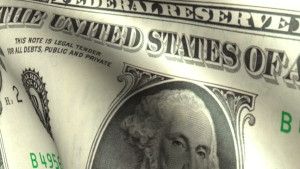Responding to this nugget from Engadget:
Tokyo’s district court has ruled that it’s not possible for people to own bitcoin, and therefore they cannot sue for compensation in the wake of Mt. Gox’s collapse.
The ruling comes days after the head of the world’s largest bitcoin exchange was arrested on charges of fraud. Judge Masumi Kurachi felt that bitcoins do not possess “tangible qualities” to constitute owned property. Mt. Gox held thousands of individual accounts, and so there’s plenty of angry customers looking for compensation.
Here at Lifeboat, we have a long term view of cryptocurrency, and we sense the underpinning of fundamentals that are often overlooked.
My response to the Tokyo court…
A personal stake in Bitcoin is every bit as real (and a bit more tangible) than a personal stake in Yen, Dollars or Euros. Fiat currency is backed by the knowledge that your national government will demand tax payments in kind. But is it tangible? Like any invention of humans, that’s a matter of perception.
a) Dollars / Yen / Euros
 Over the long term, national currency is likely to be debased by debt, social welfare, war, political ambition, and a desire to redistribute fruits of labor, typically to assuage political ambitions. A built in mechanism of inflation forces a hidden tax and enables legislators to spend beyond the consent of their constituents.
Over the long term, national currency is likely to be debased by debt, social welfare, war, political ambition, and a desire to redistribute fruits of labor, typically to assuage political ambitions. A built in mechanism of inflation forces a hidden tax and enables legislators to spend beyond the consent of their constituents.
b) Bitcoin
 Bitcoin on the other hand is backed by math. It is an asset without the potential for inflation or manipulation. It is a pure supply-demand currency and a pure 2-sided network—completely unfettered by the chaff that comes with central banks and national treasuries.
Bitcoin on the other hand is backed by math. It is an asset without the potential for inflation or manipulation. It is a pure supply-demand currency and a pure 2-sided network—completely unfettered by the chaff that comes with central banks and national treasuries.
A stake in Bitcoin rises over the long haul, because the total quantity of currency is capped. As it is adopted for payments and commerce, a fixed pie is sliced thinner and thinner. This results in increased value per unit. Result: A deflationary economy without the baggage of sluggish economics.
Japan has made a foolish pronouncement; one that will ultimately embarrass their courts. Declaring Bitcoin ethereal is laughable when you consider that paper money is no more tangible than an unfulfilled promise. Likewise, declaring the theft or mismanagement of Bitcoin unworthy of recovery or restitution is no different than declaring the theft of art unworthy of restitution. Consider that each Mt. Gox account holder has proof of a real dollar investment position and an appreciation that is reported and tracked by exchanges all over the world.
Wake up Japan. You have so much more to offer the world than a distorted interpretation of a new technology.
Philip Raymond is Co-Chair of CRYPSA,
Cryptocurrency Standards Association

Using this precedent, is all software lacking in tangible qualities; thererfore can be copies be electronically distributed at will as per the blockchain?
[I plan to respond to Shayne’s question in the coming days. But first]…
Darth Android commented via Engadget. He said:
It’s not a simple number that you own (like 13). More precisely, you own (or, more precisely, you know) a secret string of numbers. The numbers give you ownership of a limited commodity that many individuals desire to obtain. Specifically, they give you the ability to store [save] or convey [pay out] a fraction of the total Bitcoin universe (21 million units after all coins are uncovered).
Some will debate how a secret can be treated as a store of value (i.e. as something “tangible”)—but just as with the password to your bank account, value comes from supply and demand. Neither Bitcoin or US dollars have intrinsic value.
Even those things that do (like gold, oil or other minerals) derive their value in the exact same way: supply and demand. I could mine sand all day long and few people who live near the coast would pay me. In fact, sand is only of value when transported far from shore. Therefore, the value of sand is in the trucks and fuel and not in the sand itself. It’s all about supply and demand.
The Tokyo court has made an error that stems from an ignorance of economics, finance, and sociology. Eventually, they will be embarrassed, and that embarrassment will be proportional to the duration of their uncorrected gaffe—or perhaps the number of citizens harmed by derivative decisions.
~Philip Raymond